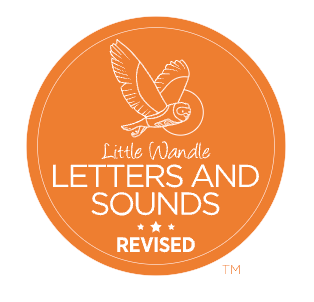Religious Education
RE at Grange C of E Primary
RE is key to helping our pupils to grow up in the diverse and multi-faith world of today. RE at our school aims to give pupils the opportunity to develop an understanding and knowledge of religions and beliefs locally and globally. RE supports everyone’s unique view of the world and is an entitlement at all Key Stages. At this school, RE expresses and strengthens our vision, ethos and values as a Church of England School. The importance placed on the development of the whole child spiritually, morally, socially, culturally and intellectually is reflected in the RE curriculum.
The aims of RE are to enable young people to be:
Enquiring: that pupils develop curiosity about life, willing to enquire into questions of ultimate meaning and worth and the concepts by which religions, beliefs and values seek to address challenging questions.
Informed: that pupils develop the skills and attitudes that enable them to be well-informed about the religious and nonreligious responses to the big questions of life and how these are expressed through practice. This includes both knowing and understanding beliefs and values including the concepts through which these are expressed.
Reflective: that pupils develop the ability to reflect on and express their own views while thinking about other people’s beliefs and values. Pupils are able to think and question, to consider, analyse, and evaluate issues of truth, belief, faith and ethics and to express their responses. They learn from as well as about religion. They reflect upon beliefs and values as part of their own spiritual development.
Expressive: that pupils develop the confidence and ability to express respectfully their knowledge, understanding and views. They are able to participate in their own learning by expressing the questions and concepts they wish to explore.
How is RE taught?
As a Church of England School, we explore Christianity in all year groups. We study Islam across the age groups and from Y3 upwards we study Islam and Buddhism. In addition, other faiths are studied within units of work such as places of worship and special books so that by the time pupils leave our school they have a good knowledge of practices and beliefs. This also allows deeper thinking and building on prior knowledge. We hope that our children will develop strong, balanced beliefs and values which help them to make a positive contribution to the wider community.
RE takes place weekly for at least 1 hour and includes time for discussion and reflection and activities to help children to develop their knowledge and understanding. RE is taught by class teachers and children are encouraged to ask questions and explore answers. Their thoughts may be recorded in a class RE 'floor' book so that they can reflect on these later.
At Grange CE School we follow the Cumbrian Agreed Syllabus (2023) and use ‘Questful RE’ as the basis of our scheme of work and ‘Understanding Christianity’ to support the learning. The learning builds throughout the year groups and children develop a deeper understanding of faiths, beliefs and practices.
Visits and visitors add to the curriculum with St Paul’s Church Grange and the Buddhist Temple being two of the key places of worship visited in addition to welcoming the Muslim Learner's Service into school to support our teaching and learning of Islam.
We also use shared times in school such as assembly to learn more about RE and this may link with our Collective Worship.
What contribution does RE make to learning across the curriculum?
RE provides opportunities for all pupils to learn and achieve. RE is a stimulating, interesting and enjoyable subject which encourages pupils to learn, enquire and evaluate what religions have to say about the fundamental questions of life.
RE promotes pupils’ spiritual, moral, social and cultural development (SMSC) and prepares pupils for the opportunities, responsibilities and experiences of life RE seeks to develop pupils’ awareness of themselves.
RE has an important role in preparing pupils for adult life and lifelong learning. It assists them to flourish individually within their communities and as citizens in a diverse society and global community.
It enables pupils to appreciate their own and others’ beliefs and their impact on individuals and societies.
Pupils are encouraged to reflect on their own self-worth and uniqueness as human beings.
RE plays a key role in the promotion of spiritual, moral, social and cultural development in schools. RE contributes to the spiritual development of pupils by:
- exploring powerful questions of meaning and truth;
- understanding the importance of feelings, emotions and experiences in religious belief and practice;
- considering the value, purpose and dignity of human beings;
- considering how religions and beliefs express key ideas and experiences;
- reflecting on who and what matters in life.
RE contributes to the moral development of pupils by:
- reflecting on key values and ethics within religions and beliefs;
- considering influences on moral choices and ethical decision making;
- reflecting on what is of ultimate value;
- developing a sense of conscience and responsibility.
RE contributes to the social development of pupils by:
- studying a range of social issues and communicating their findings and ideas;
- reflecting on how religions and beliefs lead to particular actions and concerns.









